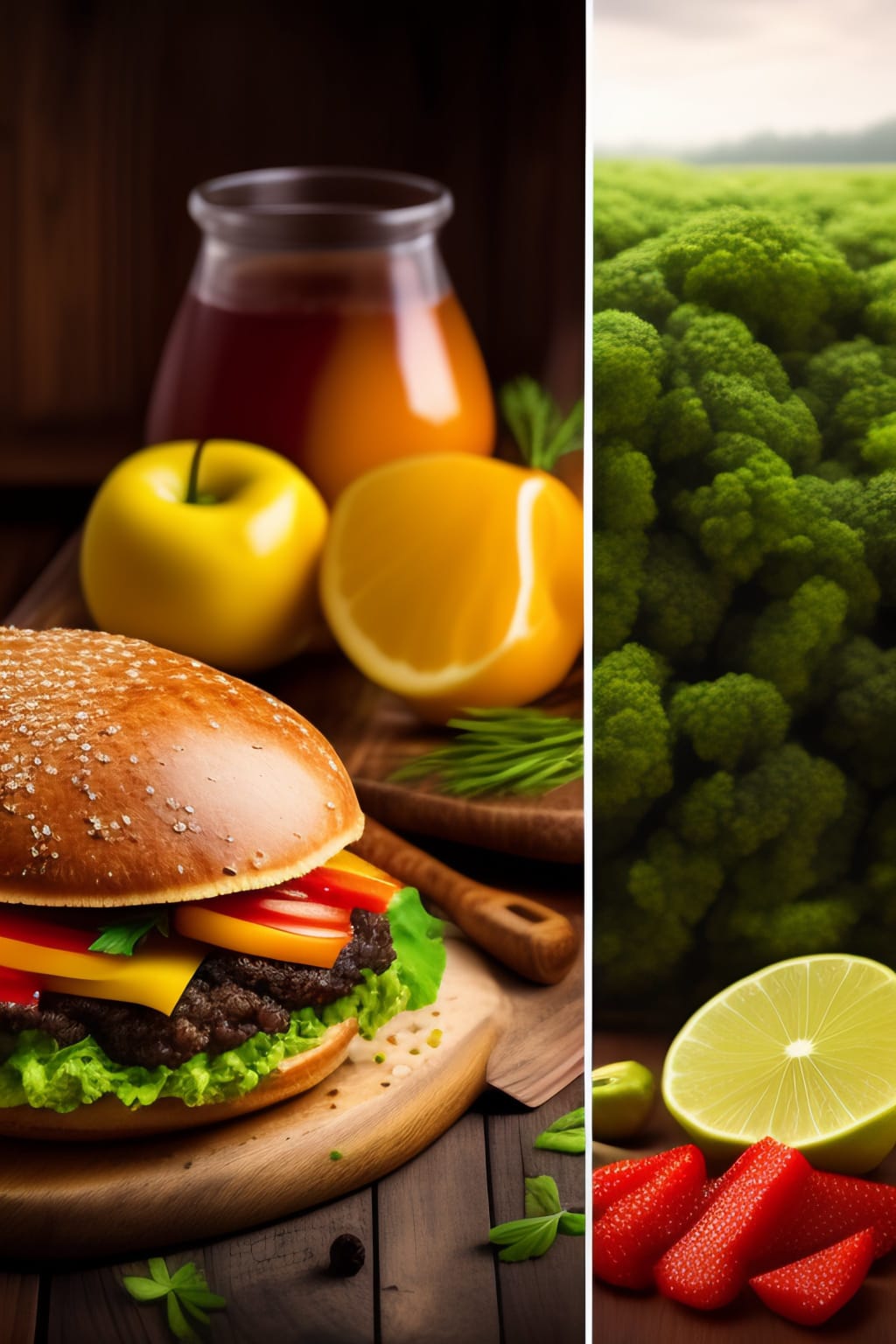Natural Foods Vs Artificial Foods
''Nourishing Our Bodies And The Debate Surrounding Them''

Introduction
In our modern era, the food industry has seen significant changes in the way our food is produced and consumed. The choices we make regarding our diets have become increasingly complex, with the rise of both natural and artificial foods. In this article, we explore the differences between these two categories, their impact on our health, and the ongoing debate surrounding their consumption.
Understanding Natural Foods
Natural foods refer to whole, unprocessed or minimally processed foods that are found in nature. They are typically rich in nutrients and free from additives, preservatives, and artificial ingredients. Natural foods include fresh fruits and vegetables, whole grains, lean meats, fish, nuts, seeds, and legumes. These foods provide essential vitamins, minerals, fiber, and other beneficial compounds that support overall health and well-being.
The Rise of Artificial Foods
Artificial foods, also known as processed or synthetic foods, are products that have undergone significant alterations through industrial processing. They often contain added sugars, unhealthy fats, artificial flavors, colors, and preservatives. Examples of artificial foods include fast food, packaged snacks, sugary beverages, frozen meals, and heavily processed convenience foods. While they offer convenience and long shelf lives, they are often nutrient-poor and can contribute to various health issues when consumed excessively.
Health Considerations
Nutritional Value: Natural foods are generally more nutrient-dense, offering a wide range of vitamins, minerals, antioxidants, and dietary fiber. These nutrients are vital for optimal health and can help prevent chronic diseases. Artificial foods, on the other hand, often lack essential nutrients and may contribute to nutritional imbalances when consumed as a significant part of the diet.
Health Risks: The overconsumption of artificial foods has been linked to health problems such as obesity, heart disease, diabetes, and certain types of cancer. These foods are often high in added sugars, unhealthy fats, sodium, and artificial additives that can negatively impact our health when consumed in excess. Natural foods, when consumed as part of a balanced diet, have been associated with reduced risk of chronic diseases and improved overall well-being.
The Debate
The debate surrounding natural versus artificial foods is multifaceted and influenced by various factors.
Food Quality: Proponents of natural foods argue that they are closer to the foods our bodies have evolved to consume. They emphasize the importance of consuming minimally processed foods to optimize nutrition and health.
Convenience: Supporters of artificial foods highlight their convenience and affordability in a fast-paced modern lifestyle. They argue that these foods can fit into a busy schedule and offer a solution for individuals with limited time for food preparation.
Food Industry Influence: Critics of artificial foods argue that the food industry's heavy reliance on additives, preservatives, and artificial ingredients prioritizes profits over public health. They advocate for greater transparency and stricter regulations to ensure the safety and nutritional quality of our food supply.
Finding a Balance
Rather than viewing natural and artificial foods as opposing forces, a balanced approach is often the key to a healthy diet. While natural foods should form the foundation of our diet, occasional consumption of artificial foods can be acceptable in moderation. The focus should be on minimizing processed foods and selecting whole, unprocessed options whenever possible.
Conclusion
The natural foods versus artificial foods debate highlights the importance of making informed choices about what we eat. While natural foods offer superior nutritional benefits, we must also consider the convenience and affordability of artificial foods. Striking a balance by prioritizing whole, unprocessed foods while indulging in artificial foods in moderation can help us maintain a healthy diet and support overall well-being. Ultimately, the key lies in being mindful of our food choices and understanding the impact they have on our bodies and our health
About the Creator
Redmark Foreal
Explore captivating articles on facts, history, life hacks, politics, psychology, poems, and mysteries. Discover engaging content that informs, entertains, and inspires. Happy reading






Comments
There are no comments for this story
Be the first to respond and start the conversation.